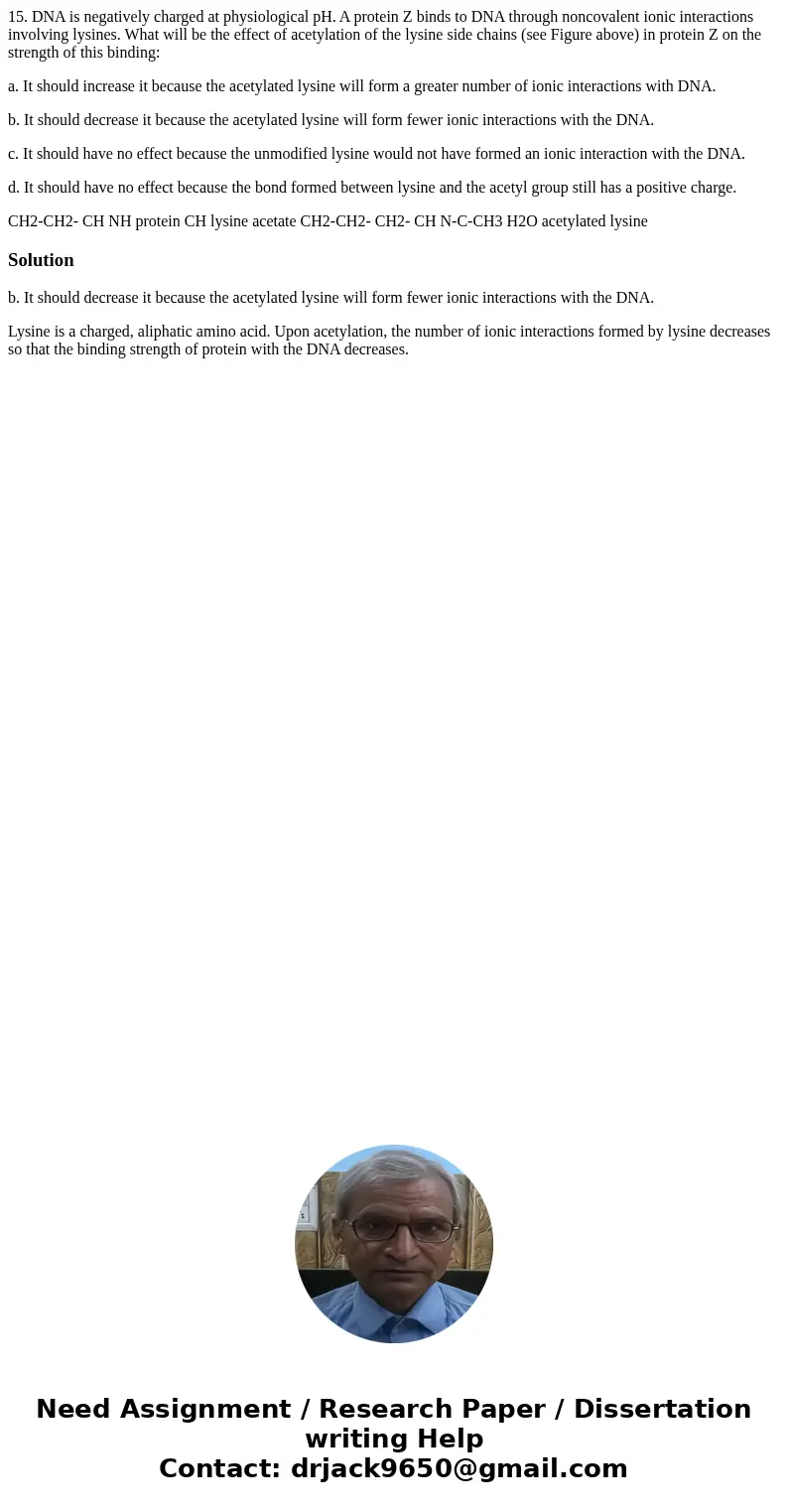15 DNA is negatively charged at physiological pH A protein Z
15. DNA is negatively charged at physiological pH. A protein Z binds to DNA through noncovalent ionic interactions involving lysines. What will be the effect of acetylation of the lysine side chains (see Figure above) in protein Z on the strength of this binding:
a. It should increase it because the acetylated lysine will form a greater number of ionic interactions with DNA.
b. It should decrease it because the acetylated lysine will form fewer ionic interactions with the DNA.
c. It should have no effect because the unmodified lysine would not have formed an ionic interaction with the DNA.
d. It should have no effect because the bond formed between lysine and the acetyl group still has a positive charge.
CH2-CH2- CH NH protein CH lysine acetate CH2-CH2- CH2- CH N-C-CH3 H2O acetylated lysineSolution
b. It should decrease it because the acetylated lysine will form fewer ionic interactions with the DNA.
Lysine is a charged, aliphatic amino acid. Upon acetylation, the number of ionic interactions formed by lysine decreases so that the binding strength of protein with the DNA decreases.

 Homework Sourse
Homework Sourse